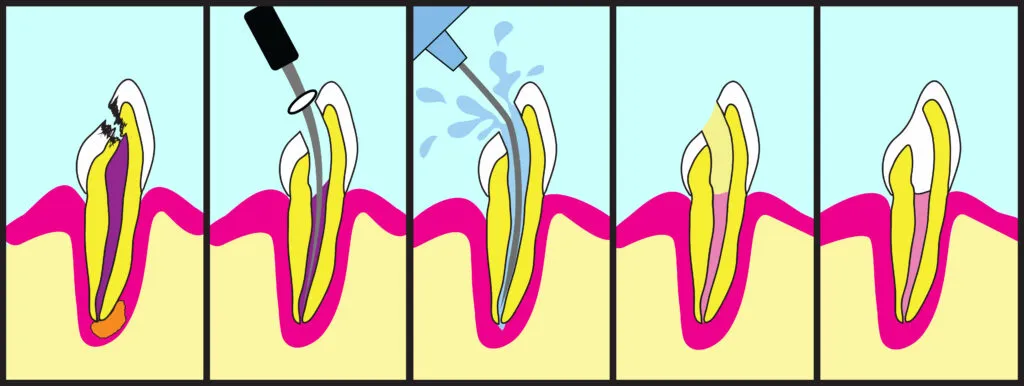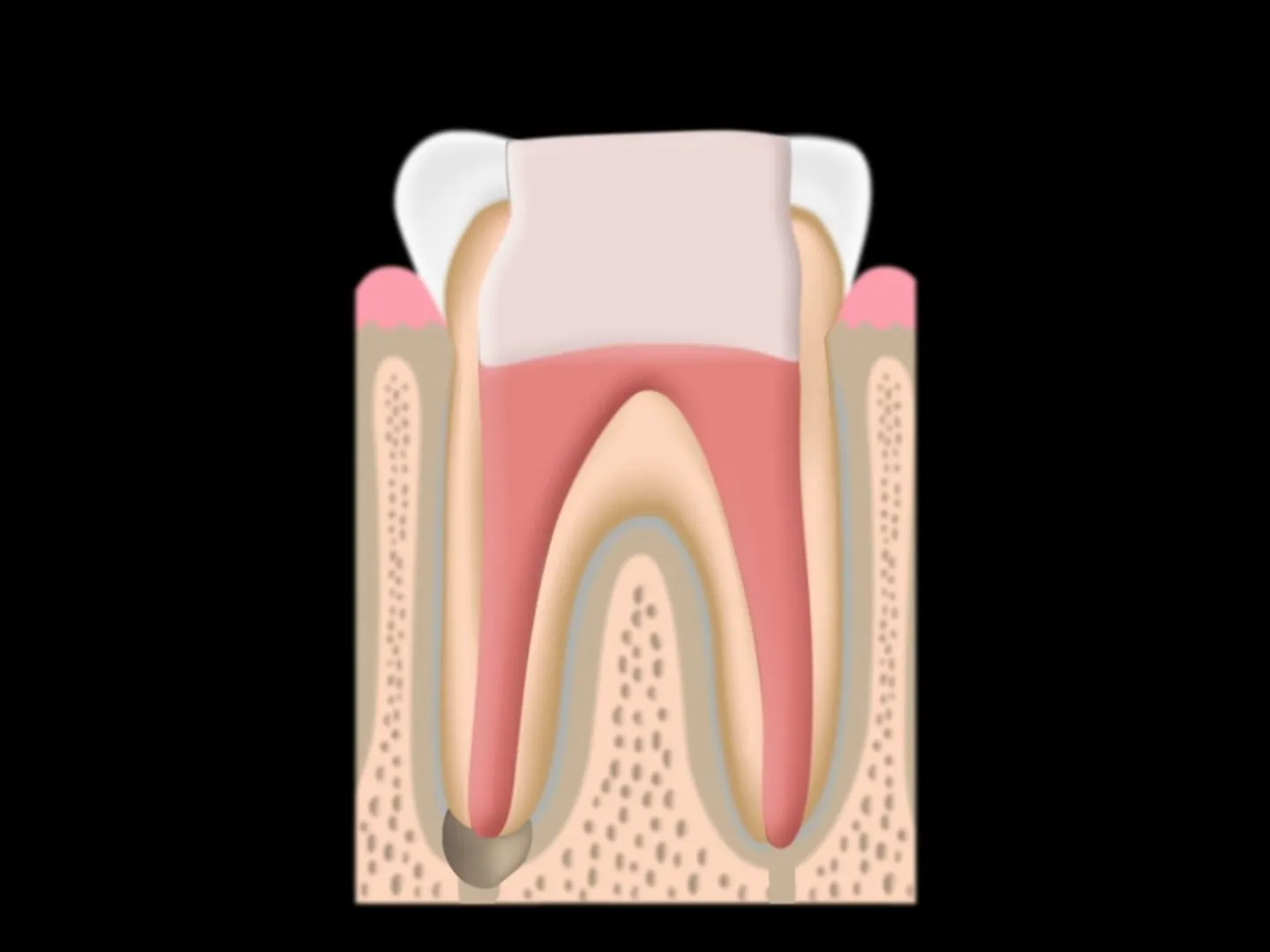Root Canal Treatment
Root Canal Treatment helps treat the infection that has reached tooth pulp and surrounding bone. The decay or trauma can result in the death of the tooth pulp. Hence, the treatment aims at removing the infected dental pulp with the help of the endodontic file. At the end of the procedure, the dentist finishes by filling in gutta-percha (rubber-like filling material) inside the canals. In conclusion, the treatment will relieve the periapical abscess resulting from a tooth infection.

How to detect When A Root Canal Treatment Is Needed?
Early detection of tooth infection prevents painful conditions and dental emergencies. Hence, it is vital to see a dentist every six months for a regular dental checkup and cleaning. The exam can detect dental cavities at an early stage, preventing the treatment. Further, a tooth can have a dental infection and can unnoticed, and only an x-ray by a dentist can detect dormant tooth abscess. Radiographic and clinical diagnostic tests are vital to the diagnosis of the treatment.
Is crown essential after root canal treatment?
The tooth has nerve and blood supply through the dental pulp. When the dental pulp becomes necrotic, and the tooth is no longer vital. After the root canal treatment, the tooth becomes brittle. The tooth is more prone to fracture after the tooth is non-vital. A fragile tooth can fracture easily and can be non-restorable. A crown surrounds the tooth and protects the tooth from falling apart. Therefore, it is essential to protect the tooth with a tooth crown after the treatment.
Complication Of Root Canal Treatment
The dentist uses fine instruments like Files, Reamers, and Broaches during the treatment. While instrumenting the canal, the root canal can fracture. A root fracture is the most common reason the therapy will fail. Further, fine instruments can also separate in the curved canals. The fillings material can extrude beyond the tooth into the bone. Though it doesn’t affect the treatment outcome, further surgery may be essential. Pain and tooth sensitiveness after the treatment for days to weeks is possible.
Schedule your dental appointment here or call us at (860)595-3903.
